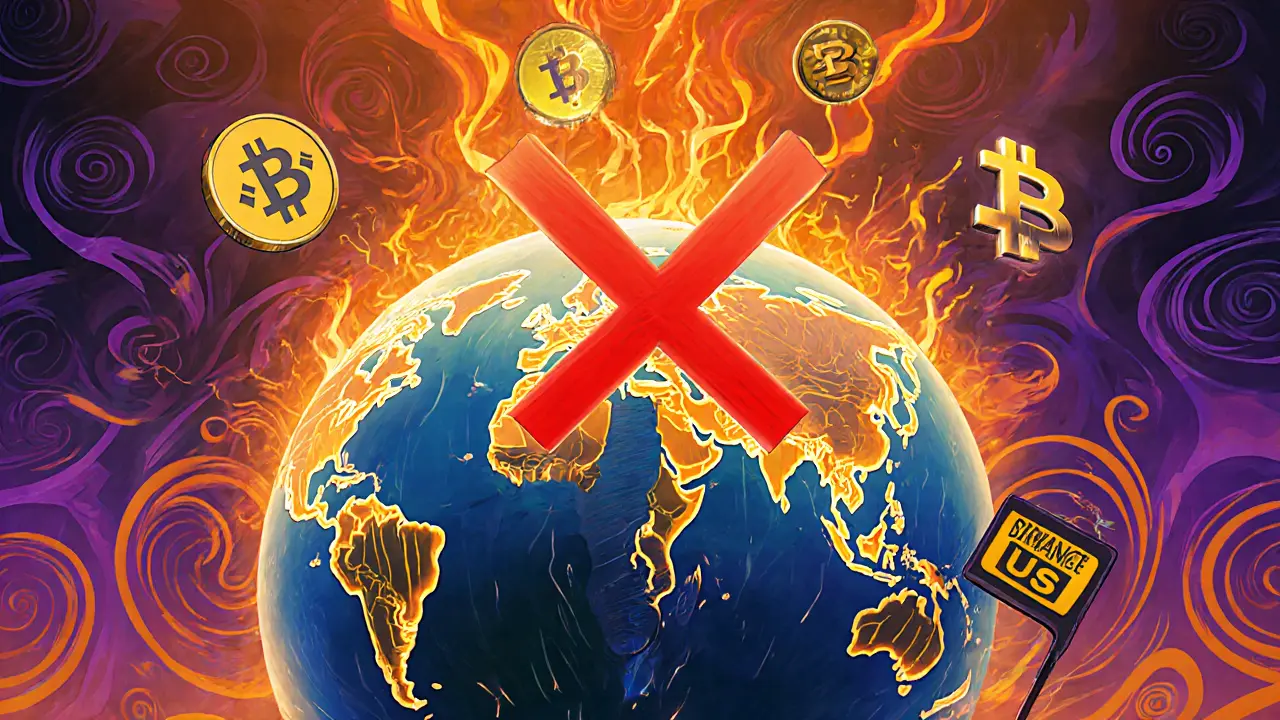Crypto Exchange Availability: Where You Can Trade and Where You Can't
When you think about buying Bitcoin or swapping tokens, you assume any crypto exchange, a platform where users buy, sell, or trade digital assets. Also known as cryptocurrency trading platform, it should just work—no matter where you live. But that’s not true. crypto exchange availability isn’t about technical ability—it’s about laws, sanctions, and local crackdowns. In some countries, you can use Binance or Coinbase freely. In others, even opening an account could land you in legal trouble.
It’s not just about big names like Binance or Kraken. Local exchanges, DeFi platforms like Uniswap, and even wallet integrations can be blocked based on national rules. For example, Qatar, a country that bans all cryptocurrency trading but allows tokenized real-world assets like property and bonds. Residents can’t buy Bitcoin, but they can invest in digital versions of real estate. Meanwhile, India, a market with over 100 million crypto users but heavy taxes and banking restrictions. Exchanges like WazirX and Bybit have been hit with penalties, making them risky even if technically accessible. Then there’s the EU, where MiCA regulation, a sweeping framework that requires exchanges to get licensed, follow AML rules, and disclose token details. is forcing platforms to either comply or shut down operations across 27 countries.
It’s not just geography—it’s also timing. An exchange that was available last year might be banned today after a regulatory shift. Airdrops you thought were open? They’re often tied to exchange access. If you can’t use a platform, you can’t claim the tokens. And scams thrive in gray zones: fake exchanges pop up where real ones are blocked, promising access but stealing funds. That’s why knowing where exchanges are allowed isn’t just convenient—it’s critical for safety.
What you’ll find below isn’t a list of platforms. It’s a breakdown of where crypto trading is legal, restricted, or outright banned—and why. You’ll see real cases: how Qatar’s rules affect tokenized assets, why Indian traders are avoiding certain exchanges, how MiCA reshapes European access, and what happens when OFAC sanctions hit a platform. These aren’t hypotheticals. They’re real restrictions affecting real wallets. Whether you’re trying to trade, stake, or claim an airdrop, this collection gives you the facts you need to avoid getting locked out—or worse.
Crypto Exchange Availability by Region Worldwide: Where You Can and Can't Trade
Crypto exchange availability depends on your country's laws. Binance is blocked in the U.S., while Ukraine and Vietnam lead in adoption. Learn where you can trade, why exchanges split by region, and what alternatives exist.
